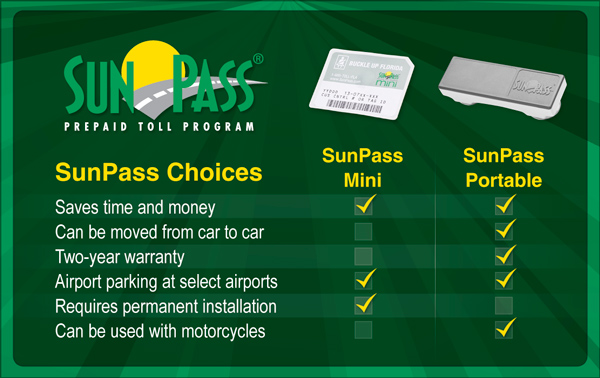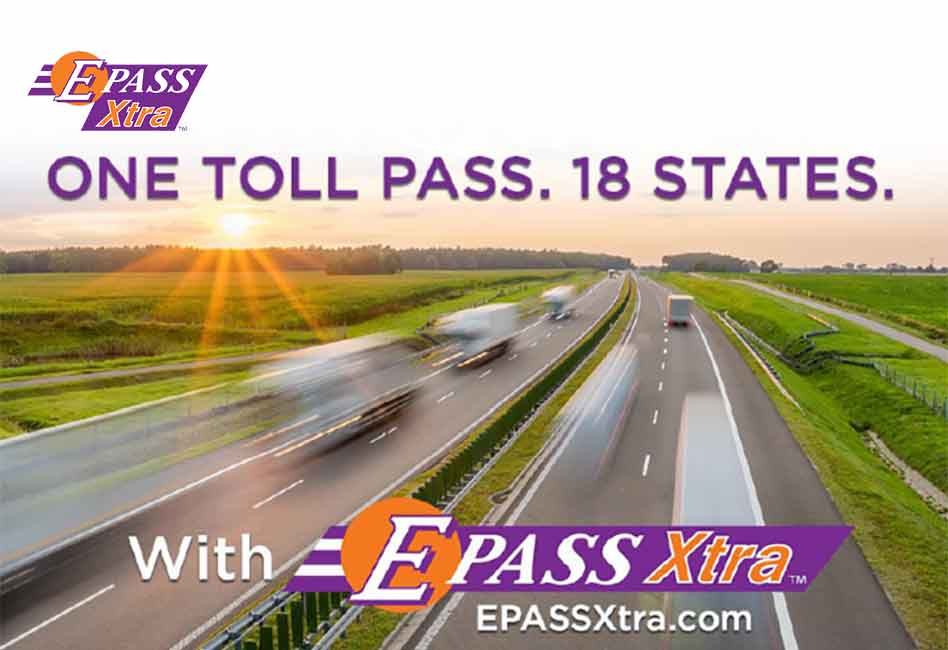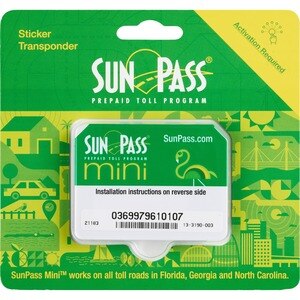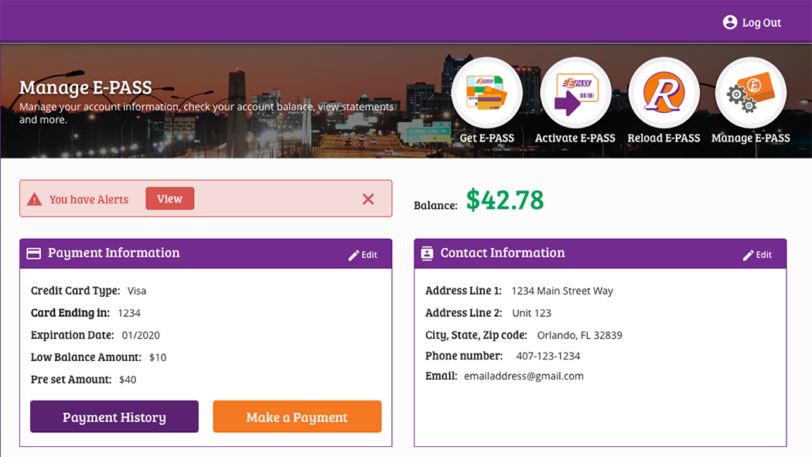E-PASS vs. SunPass: Which is Better for Florida Toll Roads?
If you’re planning a road trip in Florida, you should be aware of the toll roads you might encounter. Florida has an extensive network of toll roads that are used by millions of drivers every day. Two of the most popular electronic toll collection systems in Florida are SunPass and E-PASS. Both systems allow drivers to pay tolls electronically, without stopping at a toll booth. But which one is better for you?
In this blog post, we’ll compare SunPass and E-PASS, and help you decide which one is the best option for you. We’ll look at factors like cost, coverage, and convenience to help you make an informed decision before you hit the road.
Florida toll roads
Florida toll roads are an essential part of the state’s transportation system, providing drivers with convenient travel options on the state’s busy highways and bridges. With more than 600 miles of toll roads, Florida has one of the largest toll networks in the country.
| Toll Road | Length (Miles) | Destinations | Toll Cost (One Way) |
|---|---|---|---|
| Florida’s Turnpike | 309 | Miami to Wildwood | Varies based on exit |
| Homestead Extension of Florida’s Turnpike | 47 | Miami to Homestead | Varies based on exit |
| Alligator Alley (I-75) | 78 | Naples to Weston | $3.00 |
| Sawgrass Expressway | 23 | Coral Springs to Deerfield Beach | $1.00 – $2.00 |
| Dolphin Expressway | 15 | Downtown Miami to Miami International Airport | Varies based on exit |
| Don Shula Expressway | 14 | Kendall to Miramar | Varies based on exit |
| Selmon Expressway | 14 | Tampa | $1.50 – $2.00 |
| Beachline Expressway | 53 | Orlando to Cocoa Beach | Varies based on exit |
| Suncoast Parkway | 42 | Tampa to Spring Hill | Varies based on exit |
| Veterans Expressway | 15 | Tampa | Varies based on exit |
Toll roads are used to fund the construction, maintenance, and operation of these roads and bridges, and they are generally priced based on the distance traveled. While tolls can be a bit of a hassle for drivers, they provide a valuable service that helps to reduce traffic congestion and keeps Florida’s roadways moving smoothly.
There are two primary toll transponder systems used in Florida: SunPass and E-PASS. These systems make it easy for drivers to pay tolls electronically, without having to stop and fumble for change or wait in long lines at toll booths. In the following sections, we’ll take a closer look at each of these systems and help you decide which one is best for your travel needs.
Overview of SunPass and E-PASS
SunPass and E-PASS are two of the most popular toll payment systems used on Florida’s toll roads. Both systems offer an electronic payment option, eliminating the need to stop and pay cash at toll booths. The SunPass system is operated by the Florida Department of Transportation, while the E-PASS system is operated by the Central Florida Expressway Authority.
SunPass Overview
The SunPass system uses a transponder that is mounted on the windshield of the vehicle, which communicates with the toll plaza through radio frequency technology. The system offers several payment options, including pre-paid accounts, credit card billing, and cash replenishment. SunPass also offers a mobile app that allows users to manage their accounts, view transaction history, and even pay for parking at select locations.

E-PASS Overview
The E-PASS system also uses a transponder that attaches to the windshield of the vehicle and communicates with the toll plaza through radio frequency technology. E-PASS offers similar payment options as SunPass, including pre-paid accounts, credit card billing, and cash replenishment. In addition, the E-PASS system offers a mobile app that allows users to manage their accounts, view transaction history, and even pay for parking at select locations.

Coverage areas and interoperability
When it comes to coverage areas and interoperability, both SunPass and E-PASS have their own unique advantages. SunPass is widely accepted on Florida toll roads, bridges, and tunnels, as well as in North Carolina and Georgia, making it a great option for those who frequently travel in these areas. E-PASS, on the other hand, is accepted on all toll roads and bridges in Florida, as well as on toll roads in Georgia, making it more versatile for those who travel frequently between these two states.
However, it is important to note that interoperability between the two systems is currently limited. While both SunPass and E-PASS are compatible with the E-ZPass system used in other states, they are not yet interoperable with each other. This means that if you have a SunPass and travel on an E-PASS-only toll road, you may need to pay with cash or use a different tolling system.
Fortunately, plans are in place to improve interoperability between the two systems. In 2018, the FDOT announced plans to create a statewide interoperability system that would allow SunPass, E-PASS, and other tolling systems to work seamlessly together. While this system is not yet in place, it is a promising development for those who frequently travel on Florida’s toll roads and bridges.
SunPass vs. E-PASS Cost Comparison
When it comes to cost, both SunPass and E-PASS have their unique pricing structures. SunPass has a toll rate that is based on the Florida Department of Transportation (FDOT) pricing, which means that the toll rate is the same regardless of which transponder is used. However, SunPass charges an activation fee of $19.99 for each new account, which includes one transponder. Additional transponders are available for $4.99 each, and replacement transponders are available for $14.99.

On the other hand, E-PASS has a slightly different pricing structure. The toll rate for E-PASS is also based on the FDOT pricing, but it offers a discount of 23% on tolls that are paid using E-PASS, as opposed to cash or SunPass. E-PASS charges a one-time activation fee of $10.00 for each new account, which includes one transponder. Additional transponders are available for $7.99 each, and replacement transponders are available for $7.99 as well.
When comparing the two, it’s clear that E-PASS offers a better deal for frequent toll road users, as the 23% discount on tolls can add up to significant savings over time. However, if you’re not a frequent user, SunPass may be a better option due to its lower activation fee and the fact that it charges the same toll rate as E-PASS and cash payments. Ultimately, the choice between the two depends on your specific usage and budget.
Types of Accounts and payment options
When it comes to toll roads in Florida, having the right type of account and payment option is crucial. Both SunPass and E-PASS offer numerous account types and payment options to suit different needs and preferences.
SunPass offers several options including a pre-paid account, which requires an initial deposit, and a toll-by-plate account which offers customers the convenience of paying for tolls without having to carry a transponder. The pre-paid account is ideal for frequent travelers, while the toll-by-plate account is perfect for those who use toll roads occasionally.
E-PASS, on the other hand, offers a similar pre-paid account option as well as a pay-as-you-go option, which doesn’t require an initial deposit. The pay-as-you-go option is perfect for infrequent travelers who don’t want to commit to a pre-paid account.
Both SunPass and E-PASS offer a variety of payment options including automatic replenishment, credit card payment, and cash payment at retail locations. It’s important to note that E-PASS also offers a mobile app that allows customers to manage their accounts and pay tolls on the go.
User experience and customer service
When it comes to toll road systems, user experience, and customer service are key factors to consider. SunPass and E-PASS, both offer their own user experience and customer service levels, which can impact your overall satisfaction with the service.

SunPass offers a user-friendly website and mobile app, as well as a 24/7 customer service hotline. They also offer a variety of account management options, such as auto-replenishment and account alerts, to help you stay on top of your toll payments. In terms of customer service, SunPass has a reputation for being helpful and responsive.
On the other hand, E-PASS also provides a user-friendly website and mobile app, but their customer service is only available during business hours. They do offer account management options, such as auto-replenishment and account alerts, but they do not have as many options as SunPass. E-PASS has received mixed reviews for its customer service, with some customers reporting long wait times and unhelpful representatives.
Pros and cons of each system
When it comes to paying for tolls in Florida, there are two main options: SunPass and E-PASS. Each system has its pros and cons, and it’s important to consider them before deciding which one is right for you.
SunPass is the more widely used system in Florida and is accepted on all toll roads and most bridges in the state. One major advantage of SunPass is that it offers a discount on tolls, which can add up to significant savings over time. SunPass also offers a mobile app, so you can easily manage your account, check your balance, and reload funds on the go.
| Features | SunPass | E-PASS |
|---|---|---|
| Operating Agency | Florida Department of Transportation (FDOT) | Central Florida Expressway Authority (CFX) |
| Coverage Area | Statewide coverage on all toll roads in Florida | Primarily covers the Central Florida region |
| Compatibility | Compatible with all Florida toll roads and most interoperable systems nationwide | Compatible with all Florida toll roads and some interoperable systems nationwide |
| Transponder Types | Sticker transponder, Portable transponder, Mini transponder | Sticker transponder, Portable transponder, E-ZPass transponder |
| Retail Availability | Widely available at retail locations throughout Florida | Available at customer service centers, service plazas, and select retailers |
| Account Types | Prepaid and postpaid options are available | Prepaid and postpaid options are available |
| Account Management | Online account management portal and mobile app | Online account management portal and mobile app |
| Tolls and Discounts | Discounts on toll rates at some locations | Discounts on toll rates at some locations |
| Rental Vehicle Usage | SunPass Mini available for rental cars | E-PASS Portable available for rental cars |
| Customer Service | SunPass Customer Service Center | E-PASS Customer Service Center |
| Website | www.sunpass.com | www.epassflorida.com |
On the other hand, E-PASS is accepted on fewer toll roads and bridges in Florida, but it does offer some advantages over SunPass. For example, E-PASS allows you to pay tolls in other states, such as Georgia and North Carolina. E-PASS also offers a pay-as-you-go option, which is convenient if you don’t use toll roads frequently.
Another factor to consider is the cost of each system. While both SunPass and E-PASS charge a one-time fee for the transponder, SunPass has a lower fee of $4.99 compared to E-PASS at $9.95. However, E-PASS allows you to choose a basic or premium version of the transponder, with the premium version offering additional features such as battery backup and theft protection.
Which system is better for occasional users?
If you’re only an occasional user of Florida toll roads, you might be wondering which system is better for you – SunPass or E-PASS. Let’s take a closer look at both options.
SunPass offers a prepaid toll program that requires a minimum opening balance of $10 and has no monthly fees. It’s easy to use and provides discounts on tolls, which is great for those who use toll roads frequently. However, for occasional users, the initial cost of purchasing a transponder may not be worth it.
On the other hand, E-PASS offers a pay-as-you-go system with no account minimums or monthly fees. It’s a great option for those who only use toll roads occasionally and don’t want to spend a lot of money upfront. Although there are no discounts for tolls, you only pay for what you use, which is great for those who don’t use toll roads frequently.
So, which system is better for occasional users? It ultimately depends on your personal preference and usage habits. If you only use toll roads occasionally and don’t want to spend a lot upfront, E-PASS might be the better option for you. However, if you plan to use toll roads frequently and want to take advantage of toll discounts, SunPass might be the better choice.
Which system is better for frequent users?
If you’re a frequent user of Florida toll roads, you may be wondering which system is better suited for you: SunPass or E-PASS? The answer, as with most things, depends on your specific needs.
SunPass is operated by the Florida Department of Transportation and covers all toll roads and bridges in Florida. It offers a variety of options for users, including a pre-paid account, a pay-as-you-go account, and a portable transponder that can be used in multiple vehicles.
E-PASS, on the other hand, is operated by the Central Florida Expressway Authority and covers toll roads in the Orlando area. It also offers a variety of options for users, including a pre-paid account, a pay-as-you-go account, and a portable transponder that can be used in multiple vehicles.
For frequent users, both SunPass and E-PASS offer discounts on tolls, but SunPass tends to offer slightly better discounts. Additionally, SunPass is accepted on all toll roads and bridges in Florida, while E-PASS is only accepted in the Orlando area. If you frequently travel outside of the Orlando area, SunPass may be the better choice for you.
Conclusion and recommendation
In conclusion, both SunPass and E-PASS are excellent options for Florida toll roads. The choice between the two really comes down to personal preference and the specific needs of the driver.
If you’re a frequent traveler on Florida toll roads, SunPass may be the better option for you as it offers more discounts and is accepted on more roads. Additionally, SunPass has a wider availability of devices and options for topping up your account.
On the other hand, if you’re primarily traveling on Central Florida Expressway Authority roads, E-PASS may be more convenient for you. E-PASS also allows for account sharing, which can be great for families or friends who all use the same vehicle.
Ultimately, it’s important to weigh the pros and cons of each option and consider your own unique circumstances before making a decision. Regardless of which one you choose, having a toll transponder will save you time and money on Florida toll roads.
